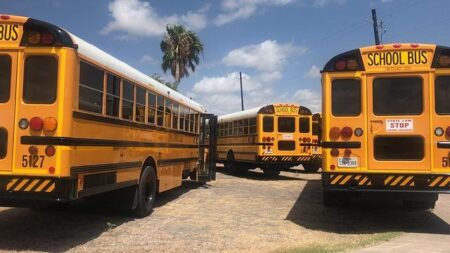Illinois legislators are reviewing a proposed bill aimed at restricting the use of waivers for students with disabilities, sparking debate over its potential impact on educational access and support. The measure,currently under consideration,seeks to tighten eligibility criteria for exemptions that allow certain students to bypass standardized testing and other academic requirements. Advocates and opponents alike are weighing in on how the changes could affect the rights and academic experiences of students with special needs across the state.
Illinois Lawmakers Debate Impact of Proposed Waiver Limitations on Students with Disabilities
Lawmakers in Illinois are currently engaged in a heated discussion regarding a bill that seeks to restrict the availability and application of educational waivers for students with disabilities. Proponents of the bill argue that these limitations are necessary to ensure that waivers are not overused, thereby guaranteeing that school resources are allocated fairly and that students are placed in the most appropriate educational settings based on standardized criteria. They emphasize the importance of consistency and accountability in meeting the diverse needs of all students across the state.
Opponents,however,caution that tightening waiver provisions could considerably impact the educational experiences and support systems for many students who rely on individualized accommodations. Advocates for disability rights stress that a one-size-fits-all approach could undermine personalized instruction and lead to diminished access to essential services. Key concerns highlighted include:
- Potential reduction in tailored learning supports
- Increased administrative burdens on school districts
- Risk of widening educational inequities
| Impact Area | Supporters’ View | Opponents’ View |
|---|---|---|
| Resource Allocation | Ensures equitable distribution | May limit necessary supports |
| Student Placement | Standardizes placement criteria | Reduces individualized flexibility |
| Administrative Process | Simplifies waiver approvals | Increases paperwork and delays |
Educators and Advocates Voice Concerns Over Potential Restrictions in Student Support Services
Educators and advocates across Illinois are raising alarms about the potential consequences of a proposed bill that aims to narrow the availability of waivers for students with disabilities. These waivers currently provide critical accommodations and tailored support, enabling many students to thrive in academic environments that might otherwise be inaccessible. Stakeholders argue that the bill could unintentionally create important barriers, undermining years of progress toward inclusive education.
Critics highlight several specific concerns, including:
- Reduced access to essential resources: Students might lose individualized supports that address their unique learning needs.
- Increased administrative challenges: Schools may face heightened bureaucracy, complicating the delivery of personalized interventions.
- Negative impact on academic outcomes: The rollback of waivers could widen achievement gaps among vulnerable populations.
| Aspect | Current Status | Potential Change |
|---|---|---|
| Waiver Eligibility | Inclusive and adaptive | More restrictive criteria |
| Student Support Range | Broad, personalized | Narrowed, limited scope |
| School Compliance | Flexible implementation | Increased regulatory oversight |
Analysis of How New Bill Could Alter Access to Specialized Educational Programs
The proposed legislation could significantly redefine criteria under which school districts grant waivers for specialized programs, perhaps reducing the flexibility educators currently have in addressing individual student needs. By tightening eligibility requirements, the bill aims to standardize access, but critics argue this could inadvertently restrict opportunities for students with unique learning challenges who do not neatly fit into predefined categories.
Key aspects under scrutiny include:
- Limiting waiver approvals to cases with documented, high-severity disabilities only
- Implementing periodic reviews of student placements to ensure compliance with new criteria
- Mandating enhanced accountability measures for districts administering specialized programs
| Current Policy | Proposed Changes | Potential Impact |
|---|---|---|
| Broad waiver eligibility | Stricter criteria and documentation | Reduced program access for borderline cases |
| Annual evaluation optional | Mandatory periodic reviews | Increased administrative burden |
| Local district discretion | State-level oversight intensified | Standardized but less flexible placements |
Recommendations for Balancing Accountability and Flexibility in Disability Education Policy
Policymakers face the complex challenge of safeguarding the quality of education while preserving the needed adaptability for students with disabilities. To strike this balance effectively, it is essential that any new legislation includes clear guidelines on waiver use to prevent overextension without undermining personalized support. Experts urge implementing robust monitoring mechanisms that track academic and developmental outcomes linked to waiver policies, ensuring interventions remain targeted and evidence-based.
Moreover, fostering collaboration between educators, families, and disability advocates is vital to crafting responsive policies. Key recommendations include:
- Regular stakeholder feedback loops to assess the practical impact of waivers in classrooms.
- Flexible yet accountable frameworks that allow adjustments tailored to individual educational needs.
- Obvious reporting requirements to maintain oversight and public trust.
| Policy Element | Purpose | Key Outcome |
|---|---|---|
| Guidelines on Waiver Scope | Prevents misuse while supporting needs | Balanced application of waivers |
| Monitoring and Reporting | Ensures accountability and transparency | Data-driven policy adjustments |
| Stakeholder Collaboration | Incorporates diverse perspectives | Policies reflecting real-world needs |
To Wrap It Up
As Illinois lawmakers continue to debate the proposed bill that would restrict the scope of waivers available to students with disabilities, stakeholders on all sides remain attentive to the potential impact on educational access and accommodations. The outcome of this legislative effort could significantly reshape the landscape of special education in the state, prompting educators, advocates, and families to closely monitor further developments.With discussions ongoing,the future of these waivers-and the students they serve-hangs in the balance.




